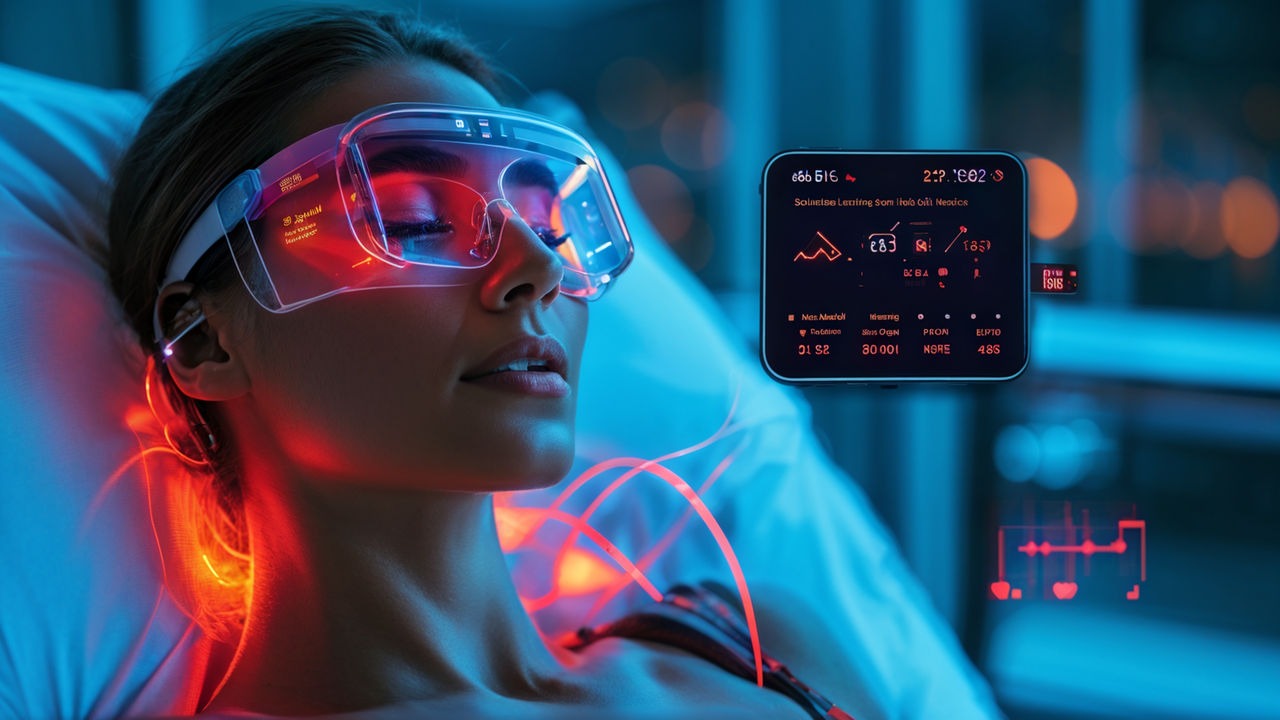Revolutionizing Healthcare Apps: Transformative AI and Wearable Technology Insights
The healthcare sector is undergoing a profound transformation, driven by advancements in artificial intelligence (AI) and wearable technology. As the demand for personalized and efficient healthcare solutions rises, AI and wearables are emerging as pivotal forces in revolutionizing healthcare apps. This article delves into how these technologies are reshaping the landscape of healthcare apps, enhancing patient outcomes, and improving overall healthcare experiences.
AI in Healthcare Apps
Artificial Intelligence is no longer a futuristic concept but a reality that is deeply embedded in various healthcare applications. AI algorithms analyze vast amounts of health data, providing insights that can significantly improve patient care. For instance, AI-powered diagnostic tools can identify patterns in medical images that might be missed by human eyes, leading to earlier and more accurate diagnoses. This capability is particularly evident in applications related to Revolutionizing Development: The Surge of Low-Code and No-Code Platforms, where AI enhances the development process by automating routine tasks and optimizing workflows.
In addition to diagnostics, AI is instrumental in predicting patient outcomes and personalizing treatment plans. Machine learning models analyze data from various sources, such as electronic health records (EHRs), to forecast potential health issues and recommend preventive measures. By integrating these AI capabilities into healthcare apps, developers can create tools that offer proactive and customized healthcare solutions, enhancing patient engagement and adherence to treatment plans.
Wearable Technology in Healthcare
Wearable technology has made significant strides in recent years, with devices such as smartwatches and fitness trackers becoming commonplace. These wearables collect real-time health data, including heart rate, physical activity, and sleep patterns, which are invaluable for monitoring and managing health conditions. For example, a smartwatch can alert users to irregular heartbeats or high blood pressure, enabling timely intervention and reducing the risk of serious health events. This integration of wearable technology aligns with the concepts discussed in Unleashing the Power of Augmented Reality in Web Development: A Transformative Journey, where augmented reality enhances user interactions with data and applications.
The data collected by wearables is often synchronized with healthcare apps, allowing users and healthcare providers to track progress and make data-driven decisions. This seamless integration not only improves the accuracy of health monitoring but also empowers patients to take control of their health. By incorporating wearable technology into healthcare apps, developers can create solutions that provide continuous health monitoring and personalized feedback, leading to more effective and responsive healthcare management.
Combining AI and Wearable Technology
The convergence of AI and wearable technology is where the magic happens. By combining these technologies, healthcare apps can offer a more comprehensive approach to health management. For instance, an app that leverages AI to analyze data from wearable devices can provide actionable insights and recommendations tailored to the user’s specific needs. This integration enhances the functionality of healthcare apps, making them more valuable tools for both patients and healthcare providers.
One notable application is in chronic disease management. Wearable devices continuously monitor vital signs and activity levels, while AI algorithms analyze this data to predict flare-ups or complications. Healthcare apps that incorporate this technology can alert users and healthcare providers to potential issues before they become severe, enabling timely intervention and reducing hospitalizations. This approach mirrors the strategies discussed in Mastering Scalable Microservices with Kubernetes: Your Ultimate Guide to Efficient Cloud Development, where the scalability and efficiency of microservices are leveraged to handle complex data and processes.
Challenges and Future Prospects
Despite the numerous benefits, integrating AI and wearable technology into healthcare apps presents several challenges. Data privacy and security are paramount, as sensitive health information must be protected from unauthorized access. Additionally, ensuring the accuracy and reliability of AI algorithms and wearable devices is crucial to maintaining trust and efficacy in healthcare apps.
Looking ahead, the future of healthcare apps will likely see even greater advancements in AI and wearable technology. Emerging trends include the development of more sophisticated AI models that can provide deeper insights and the integration of new wearable devices that offer more detailed health monitoring. As these technologies continue to evolve, healthcare apps will become increasingly capable of delivering personalized and effective healthcare solutions, revolutionizing how we manage and experience health.
Conclusion
AI and wearable technology are revolutionizing the healthcare industry, offering innovative solutions that enhance patient care and improve health management. By integrating these technologies into healthcare apps, developers can create tools that provide personalized, data-driven insights and foster a proactive approach to health. As we continue to advance in this field, the potential for AI and wearables to transform healthcare remains boundless.
Discover more from Just-CO
Subscribe to get the latest posts sent to your email.




